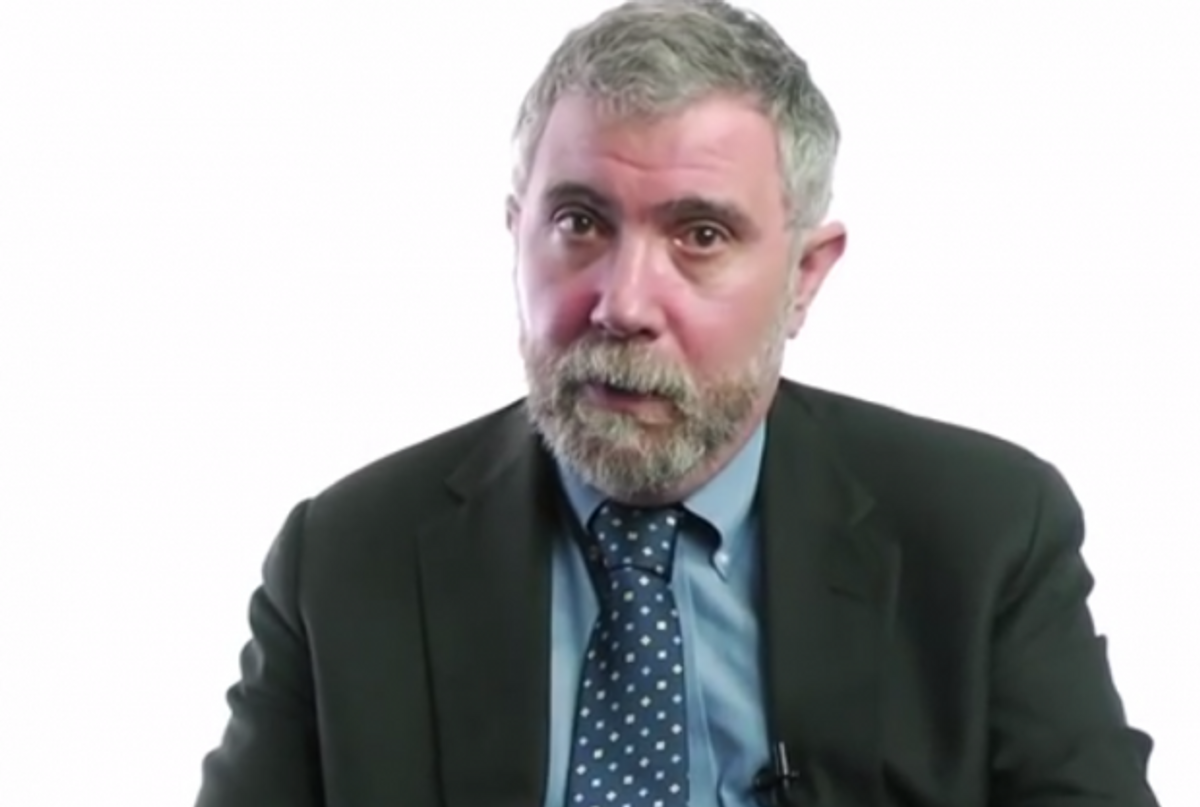In the 1990s, economist Paul Krugman was among the most prominent experts warning Japan that its declining government investments would prove disastrous as the country tried to right its troubled economic ship. But two decades after castigating Japan for its counterproductive actions, Krugman thinks an apology may be in order.
That's because the United States and Europe have pursued even more detrimental economic policies in the wake of the Great Recession, Krugman argues in his New York Times column today. Japan's cuts in public investments were indeed "a big mistake," Krugman maintains, but they were nothing compared to Europe's austerity mania or the plunge in U.S. infrastructure spending after 2010.
"Japanese fiscal policy didn’t do enough to help growth; Western fiscal policy actively destroyed growth," Krugman writes.
Moreover, Europe's monetary policies have also been fundamentally "wrongheaded," he charges. Although the Bank of Japan wasn't nimble enough in its response to deflation in the 1990s, European central banks set a new standard for boneheaded monetary policy. By prematurely raising interest rates in 2011, Krugman notes, the European Central Bank returned Europe to a recession, while Sweden's Riksbank also raised rates even as unemployment remained high and inflation came in below target. The result? As any serious economist would predict, Sweden soon saw deflation.
What prompted Western economies to follow such foolish courses? Krugman suspects that it has a lot to do with the view -- widespread among political elites -- that "conventional respectability" is always the right economic prescription. So even though balancing the budget and vigorously guarding against inflation actually make depressed economies worse, deficit scolds and inflation alarmists continue framing economics as a morality play.
And why has this approach produced even worse results than Japan witnessed? The answer, Krugman speculates, lies in politics:
As for why the West has done even worse than Japan, I suspect that it’s about the deep divisions within our societies. In America, conservatives have blocked efforts to fight unemployment out of a general hostility to government, especially a government that does anything to help Those People. In Europe, Germany has insisted on hard money and austerity largely because the German public is intensely hostile to anything that could be called a bailout of southern Europe.
Read Krugman's column here.

Shares